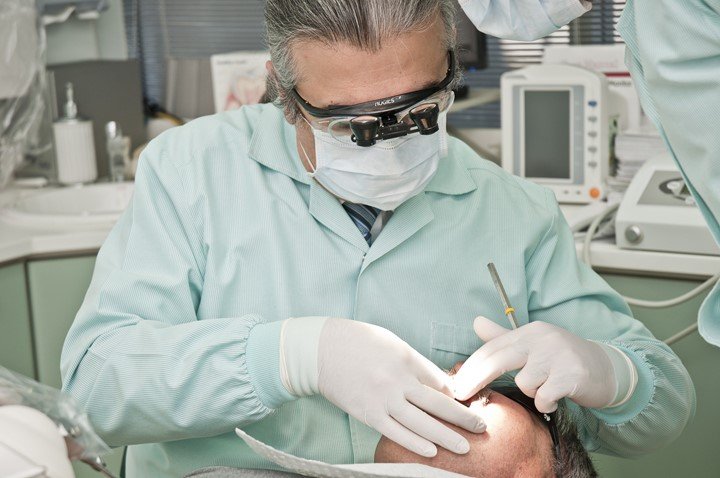A dental hygienist takes care of your dental or oral health. They make reviews on dental health history, screen patients, conduct dental cleanings, take dental x-rays, and healthily educate clients on how to maintain good dental hygiene. Dental hygienists are normally licensed by an appropriate body which depends on the country or state they live in. Most health organizations prefer to hire dental hygienists with a bachelor’s degree, although some hire those with a higher diploma in dental hygiene. There are several advantages you get to enjoy being a dental hygienist. However, there are limitations too.
Pros of being a dental hygienist
1. Good salary: An increase in demand for dental hygienists has led to an increase in the amount of money they charge for their services, making them earn a good salary. A good salary to enjoy and financial security motivates one to work hard and enhances better service delivery.
2. Reduced schooling time: Dental hygiene is normally a short-term training career under the health careers. Reduced learning time means starting to work at an early age and long years of working and earning. Most organizations will prefer to employ a bachelor’s degree, which normally takes about 3-4 years.
3. Guaranteed job: Increased demand for dental hygienists; registered dental hygienists to be specific makes those who train to become dental hygienists guaranteed a job after completing school.
4.
Flexible working days: Dental hygienists can sign up with a professional online platform as a freelancer. They get to choose the working hours and agency they desire to work. As a freelancer, one gets the desired payment and several job opportunities.
5. No night shifts: Dental hygienists are lucky among the health professionals because they will not have to work night shifts. Most night shifts are challenging to most health professionals who sacrifice that much for the well-being of patients.
6. Good working environment: Dental hygienists work in good, well-equipped dental offices with comfortable seats, sometimes with internet connection and good ventilation. A good working environment motivates workers and enhances better service delivery.
7. No need to work during holidays: Unlike most healthcare professionals who require their members to work during holidays, dental hygienists don’t. It means they enjoy quality time with family and friends during holidays.
8. No need to struggle with early traffic: Most dental hygienists have flexible working hours. Therefore, they won’t have to deal with early traffic hours when working. That sounds amazing, unlike most of the workers who have to wake up early so that they get to work on time.
9. Different work settings: Dental hygienists may have different kinds of work settings. They can choose to work in a general dental office or a special clinic like a periodontics or orthodontics office. The government may also employ dental hygienists to work in the special dental clinics in national hospitals.
10. Increased demand: Dental hygienists have a great advantage in obtaining a job due to the increased demand to work in hospitals, nursing homes, special clinics, special homes for children and adults, and even schools.
Cons of being a dental hygienist
1. Need for a license: To practice as a dental hygienist, you will require a license from an appropriate body. Some of the requirements for licensing include a set of minimum practicing hours, minimum class hours of dental hygiene course and sitting for an exam and passing it. You will have to sit for an examination and pass to get the license. The exam requirements normally vary from one country to the other.
2. Requires formal training: Becoming a dental hygienist starts with completing a course in dental hygiene. The program or course may vary depending on the country or state. Every country requires one to have a license to practice, and some may also require one to have a bachelor’s degree in dental hygiene. A bachelor’s degree in an associated field takes about four years, and a masters may take between one to two years.
3. You will incur costs for your education: The cost of training to become a dental hygienist varies from country to country and depends on the program. According to a survey conducted by a dental hygienist association, the average cost of completing a degree course in dental hygiene can be about $36,382. It is quite a fortune and can be challenging without financial assistance.
4. Challenges with licensing between states: The license you get at one state that allows you to practice may not be valid in other states. Each state or country has its regulations and rules for licensing dental hygienists that want to practice within their states. The little reciprocity between states makes it difficult for dental hygienists to relocate or find jobs in other states.
5. Limited option of the type of work: The greatest challenge for dental hygienists is the absence of variety in day-to-day work. Dental hygienists normally work in a dental office, see the same patients, and perform the same procedures every day. It could lead to boredom and lack of motivation to work.
6. Inability to work full-time: Most dental hygienists do not work on a full-time basis. The option of a full-time dental hygienist is normally limited. It can also be due to some organizations prefer to hire part-time dental hygienists to save on costs
7. Limited benefits: Most dental hygienists are not entitled to health insurance, retirement, and paid vacation because they work part-time.
8. Limited time to break: Dental hygienists are not quite different from other health professionals who face the challenges of taking a short break-even to get a cup of coffee. They may have to work for longer hours to meet the increasing demand for their services.
9. Unwanted schedule: Dental hygienists sometimes face challenges such as unplanned work schedules. Some shifts might come during off days or during weekends. It could lead to little time to spend with family and friends.
10. Health risks associated with work: Dental hygienists may face occupational hazards like any other worker. They may have health conditions such as carpel tunnel syndrome. They can also get neck injuries, shoulders, back, and wrist injuries due to repetitive tasks.



